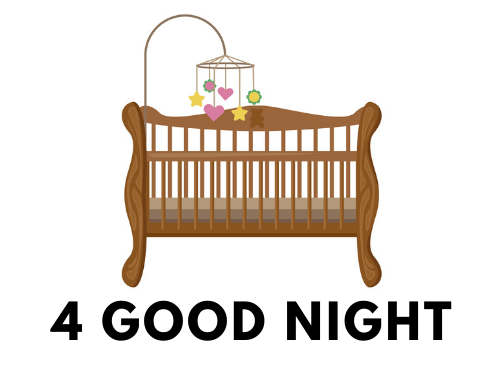Intro:
Congratulations, you’ve embarked on a fantastic journey of motherhood. As a new mom, you may find yourself continuously learning and adapting, especially when it comes to your little one’s sleep schedule. Navigating through the sleep cycle of your 11-month-old may seem challenging, but rest assured, you’re not alone.
This comprehensive guide will help you understand everything you need to know about an 11-month old’s sleep schedule. You’ll gain insights into bedtime practices, nap times, common challenges, and how various factors, including diet and teething, can affect your baby’s sleep. Let’s journey together into the world of baby sleep to help you and your baby get the restful nights you deserve.
Understanding the Sleep Cycle of an 11-Month Old Baby:
Your baby’s sleep cycle is quite different from an adult’s. At 11 months, most babies sleep for about 14 hours in total each day, often divided between night-time sleep and one or two daytime naps. The sleep cycle consists of periods of REM (Rapid Eye Movement) and non-REM sleep, which influence your baby’s dream activity and sleep quality.
Ideal Bedtime for 11-Month Old: Suggested Hours:
An ideal bedtime for an 11-month old typically ranges between 7-8 PM. This allows your baby to get the recommended amount of sleep before waking for the day. However, every child is unique, and some may require a slightly earlier or later bedtime. Observe your child’s sleep signals such as yawning, rubbing eyes, or becoming fussy, which indicate that it’s time for bed.
Typical 11-Month-Old Nap Duration and Frequency:
At this age, babies often transition from two naps to one. The morning nap might become shorter or disappear, leaving only an afternoon nap. Typically, an 11-month old should have 2-3 hours of daytime sleep. This can be divided into a single nap or two shorter ones, depending on your baby’s needs.

What to Know About 11-Month-Old Sleep Regression:
Sleep regression is a period when a baby who’s been sleeping well suddenly starts waking up at night or skipping naps. For some, the 11-month mark could bring about a sleep regression due to developmental milestones like crawling or walking. It can be a challenging time, but remember it is temporary and part of your baby’s growth.
Managing Night Wakings in an 11-Month-Old:
Night waking is common at this age. It could be due to various factors like teething, sleep regression, or hunger. It’s important to establish a soothing and predictable bedtime routine, which can reassure your baby and promote better sleep. Try to respond to your baby’s cries in a calm, comforting way to help them self-soothe and go back to sleep.
Table: Typical Sleep Schedule for an 11-Month-Old Baby
| Time | Activity |
|---|---|
| 7-8 AM | Wake Up |
| 9-10 AM | Morning Nap (optional) |
| 12-2 PM | Afternoon Nap |
| 7-8 PM | Bedtime |
Common Sleep Challenges for 11-Month Old Babies:
Your baby could experience several sleep challenges, such as night wakings, sleep regression, and separation anxiety. Stay patient and consistent with your sleep routines, and remember, these stages are all part of your child’s normal development and will pass in time.

Diet’s Impact on the 11-Month-Old Sleep Pattern:
Diet can significantly impact your baby’s sleep. Foods high in protein and carbohydrates can promote better sleep. However, avoid feeding your baby right before bedtime as it might cause discomfort and disrupt sleep. Ensure your baby has awell-balanced diet throughout the day for optimal sleep health.
Creating a Soothing Bedtime Routine for Your 11-Month Old:
A soothing bedtime routine can signal to your baby that it’s time to sleep. This routine can include a warm bath, a bedtime story, lullabies, or gentle massages. Keeping this routine consistent helps your baby understand what to expect, thus easing the transition to sleep.
Addressing Sleep Separation Anxiety in an 11-Month-Old:
At around 11 months, some babies develop separation anxiety, which can affect their sleep. They might wake up and become upset when they realize you’re not present. To manage this, practice spending short periods away from your baby during the day. At night, reassure your baby with gentle pats and soothing words, reminding them that you’re near.
The Importance of a Consistent Sleep Environment for 11-Month Olds:
Creating a sleep-friendly environment is vital for your baby’s sleep quality. The room should be dark, quiet, and at a comfortable temperature. Use a nightlight if needed, and consider a white noise machine to mask any disruptive sounds. A safe, familiar sleep environment can help your baby feel secure and sleep better.

Sleep Training Techniques for 11-Month-Olds: Pros and Cons:
Several sleep training techniques can help your baby self-soothe and sleep through the night. These methods range from the ‘cry-it-out’ method to gentler approaches like ‘no tears’ or ‘fading’. Each method has its pros and cons and what works depends on your baby’s temperament and your comfort level with the process.
Nighttime Diaper Changes and Sleep Disturbances in 11-Month-Olds:
Nighttime diaper changes can disrupt your baby’s sleep. To minimize disturbances, consider using highly absorbent diapers for the night. If a diaper change is necessary, keep the room dimly lit and activities to a minimum to help your baby return to sleep quickly.
Teething and Its Effects on an 11-Month-Old’s Sleep:
Teething can cause discomfort, leading to disrupted sleep. If your baby is teething, they might wake up more frequently. Ease their discomfort with teething toys or by gently massaging their gums with a clean finger. Consult your pediatrician for suitable pain relief options if required.

When to Seek Medical Advice Regarding Your 11-Month-Old’s Sleep Patterns:
If your baby consistently struggles with sleep or their sleep issues persist beyond what’s considered normal, it’s advisable to seek medical advice. Signs to look out for include difficulty breathing during sleep, excessive sleepiness during the day, or any drastic changes in sleep patterns.
Conclusion:
Navigating the sleep schedule of your 11-month old might feel like a mammoth task, but remember, each baby is unique and finding what works best for your little one can take some time. Your patience, consistency, and understanding during this phase can help shape a healthy sleep routine for your baby. As always, don’t hesitate to seek professional help if you have concerns about your baby’s sleep patterns. With these insights and tips, we hope you feel more prepared to manage and improve your baby’s sleep. Happy parenting!
Additional Insights
Transitioning from Two Naps to One for an 11-Month Old Baby:
This is a significant change that happens around this age. Your baby might show signs of readiness for one nap by refusing the morning or afternoon nap consistently. During this transition, ensure your baby gets enough sleep by offering an earlier bedtime if needed.
The Impact of Daycare on the 11-Month-Old Sleep Schedule:
If your baby attends daycare, this could affect their sleep schedule. Each daycare has different nap times, which might not align with your baby’s sleep schedule. Try to adjust your baby’s sleep schedule gradually to align with the daycare schedule, ensuring they get enough sleep.
Traveling and Maintaining an 11-Month-Old’s Sleep Schedule:
Traveling can disrupt your baby’s sleep schedule due to changes in the environment and time zones. Try to maintain your baby’s sleep schedule as much as possible during travel. Pack familiar sleep items like their favorite blanket or toy to help them adjust to the new environment.

How Illness Can Affect Your 11-Month-Old’s Sleep:
Illness can disrupt your baby’s sleep due to discomfort or fever. During this time, offer extra comfort and stick to your routines as much as possible. Don’t worry if your baby sleeps more than usual, as sleep helps their body recover.
Understanding the Link Between 11-Month-Old Developmental Milestones and Sleep:
Your baby is learning new skills every day at this age. These milestones, like standing or walking, can affect sleep as your baby might wake up to practice these skills. Be patient and reassure your baby at night to help them settle back to sleep.
Disclaimer:
Please note that the information in this post is based on my personal experiences and observations as a mother, along with insights gathered from discussions with my children’s doctor and fellow parents. While I have done my best to ensure the accuracy of the information, it should not be considered professional medical advice.
The content is intended to provide general guidelines and may not apply to all children. Each child is unique, and their needs may vary. Always consult with a healthcare professional or pediatrician for any concerns about your child’s sleep or health.














